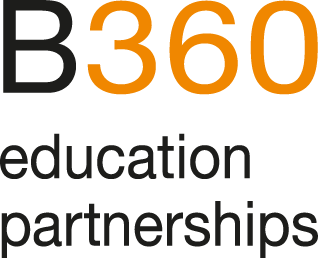Urs Bolt
Director External Asset Management
Credit Suisse
Post-Graduate Diploma programme in Small Enterprise Consulting Entrepreneurship
Tertiary School in Business Administration, Cape Town
March 15 - March 19, 2016
Igniting Entrepreneurship in South Africa
To support entrepreneurs, one should have some understanding of what entrepreneurship is about. And so it was fitting that TSiBA’s Post-Graduate Diploma in Small Enterprise Consulting (PG Dip SEC) programme for 2016-17 kicked off in March with a week-long scrutiny of entrepreneurship and its main agents. Popular wisdom, contained in books such as Napoleon Hill’s “Think and Grow Rich” and Richard Branson’s “Screw It Let’s Do It”, simply did not qualify for discussion. As the guest lecturer in this year’s Post-Graduate Diploma programme in Small Enterprise Consulting, I preferred to present facts and frameworks that would work independently of pom-poms and power slogans. With over 25 years of buy- and vendor-side experience in the banking industry including entrepreneurial and social impact experience, I felt confident to deliver a lecturing style different to the traditional.
My focus in the week-long Entrepreneurship course was on experiential learning, drawing participants into the process of knowledge creation. At times, this meant debates would reach very high temperatures as participants threw their viewpoints into the melting pot. From the outset, theory was related to the real world. On the first day, each participant had to select a business to consult to during their 18 months on the programme. Businesses made available for pairing had all approached TSiBA’s Ignition Centre – an entrepreneurial service hub – for assistance and had agreed to participate in the PG Dip SEC. Frameworks and concepts presented to students during daytime lectures became night time assignments for application to their real-world case studies.
The conceptual toolkit that I prepared and brought with me addressed the major components of entrepreneurship individually, allowing for detailed focus on specific aspects, while each of these components was slotted into an overarching Business Model Canvas framework that thoroughly mapped a business on a single sheet of paper. By the end of the week, students could set down a Business Model Canvas for their client businesses as they understood them at that point, in effect interrogating their customer segments, value propositions and revenue streams, among others, ahead of their first formal meeting.
I also brought five books that I judged to be essential reference works in the field of entrepreneurship. I happily donated these books to TSiBA’s library to allow other students to benefit going forward. An extensive reading list of articles and papers gave students an up-to-date and self-curated selection of good thinking and theory on entrepreneurship and business models. South Africa’s own entrepreneurship performance and environment was critically evaluated in several papers, which I included in the literature pack.
Theory was given a leg stretch when students broke out on three occasions to study entrepreneurship “in the field”. The first excursion was to the Cape Craft and Design Institute (CCDI) in Cape Town, a not-for-profit organisation that draws on enterprise development funding from the government to develop craft and design businesses. The CCDI runs a packed schedule of creative and business workshops, while crafters can book personal consultations with top-class specialists in design and marketing and use top-of-the range equipment – including 3D printers – to create prototype products. All these services are offered at little or no cost to the crafter. The second excursion was to meet an entrepreneur who has risen out of the mass of beadwork crafters to become a designer and agent of beadwork and other African crafts.
He has benefited from the CCDI’s support in developing his business from a one-person crafter to a designer, marketer and retailer. Students met with him in his showcase store in the V&A Waterfront in Cape Town. He also supplies southern Africa’s premium retail chain for curios and a retail chain in the United States. Students transferred their learnings to a Business Model Canvas for this business, getting to deeper grips with customer segmentation, value propositions and revenue streams, among others. The final excursion – to a community gardening, sewing and baking project in the Philippi township – drew heated debate on the extent of intervention needed when a project appears to be failing.
Sturdy investment by donors was evident in the buildings and equipment on the premises – but a row of computers, donated for the project’s computer training centre, stood unconnected against a wall two years after receipt, while two industrial ovens, donated for the project’s bakery department, stood unconnected in a back room, at least one year after receipt. A full hydroponic installation also stood unused. Organisational capacity was clearly an issue requiring deeper scrutiny.
The first block week set the tone for a programme that combines high-level expertise with the reality of the entrepreneurial experience. It was with some tenderness and much appreciation that the students thanked and wished me farewell on the final day. And so it was, as a student stated, that a Bolt had ignited TSiBA’s PG Dip SEC for 2016 into lift-off! Thanks to everyone making this unforgettable experience at TSiBA possible!





